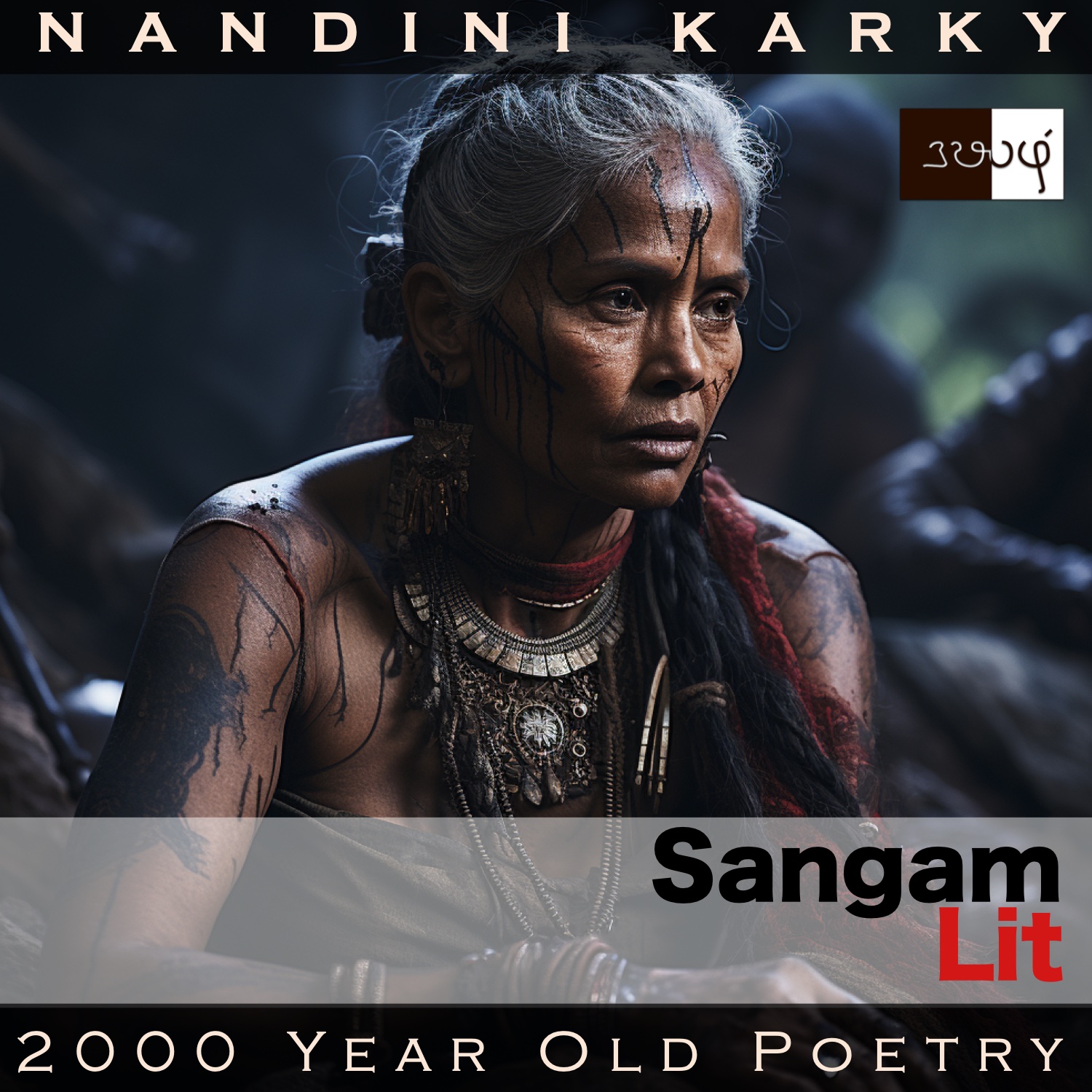Podcast: Play in new window | Download
Subscribe: Apple Podcasts | Spotify | Amazon Music | Android | iHeartRadio | Email | TuneIn | RSS | More
In this episode, we understand the integrity demanded in a soldier’s stance, as depicted in Sangam Literary work, Puranaanooru 278, penned by the poet Kaakkai Paadiniyaar Nachellaiyaar. The verse is situated in the category of ‘Thumbai Thinai’ or ‘Battle of two kings’ and talks about that which instills pride in a Sangam mother.

‘நரம்பு எழுந்து உலறிய நிரம்பா மென் தோள்,
முளரி மருங்கின், முதியோள் சிறுவன்
படை அழிந்து, மாறினன்’ என்று பலர் கூற,
‘மண்டு அமர்க்கு உடைந்தனன் ஆயின், உண்ட என்
முலை அறுத்திடுவென், யான்’ எனச் சினைஇ,
கொண்ட வாளொடு படு பிணம் பெயரா,
செங்களம் துழவுவோள், சிதைந்து வேறு ஆகிய
படு மகன் கிடக்கை காணூஉ,
ஈன்ற ஞான்றினும் பெரிது உவந்தனளே!
Yet again, the song revolves around the theme of a mother-son relationship. The words of this female poet can be translated as follows:
“With visible veins on her unfilled gentle arms, with skin akin to that of a lotus leaf, was that old woman. Hearing many say that her son had turned his back fearing the enemy attack, she declared with fury, ‘If he had lost his resolve in the battle, I shall cut off these breasts that he suckled from’. She left with a sword and searched, turning over the slain bodies in the red-stained battlefield. On seeing the state of her son split into many pieces with battle wounds, she felt more joy than what she felt on the day she bore him!”
Time to explore the nuances. The poet starts in the same style of songs in this theme by sketching the age of a woman. Here, the poet remarks on how the veins are green and stark on the lady’s arms that lack flesh and fat and are hanging low with wrinkled skin sans muscle. Her wrinkly appearance is further highlighted by presenting it in parallel to the surface of a lotus leaf. From her appearance, the poet turns to the words heard by this woman about her son, which are certain comments about how he ran away from the battlefield. Hearing this, the mother declares that if at all what you say is true and he did retreat from the battlefield showing his back, then I shall tear apart these breasts that he fed from. With that oath, this old mother marches to the red-hued battlefield and turns over all the bodies of the slain soldiers. Just then, she finds out how her son’s body is cut into many pieces. She puts together these parts and sees that his dead form is filled with wounds only on the front, clearly indicating that he fought bravely and died defending his cause. Seeing this, the mother feels more joy than the day she brought him into this world, the poet concludes.
In the previous verse, we have already discussed the joy a mother feels on the day her child is born and the implication of this poetic thought about something that brings greater happiness than that moment. In this verse, I wish to focus on the trust the mother has in her son, on his honour ,and her determination to prove the words of others wrong. Imagine stepping into the battlefield and looking at all that death and loss, and we’ll know it’s too much to even think about. But here, the mother bravely goes forward to bring to light the truth of her son’s fight. Something that clearly illustrates that honour was regarded higher than life itself then, and a gracious end was more welcomed and celebrated than a disgraceful existence!




Share your thoughts...